Behukosai 5782 – Embracing the Yoke of Avodas Hashem
Consider sponsoring a shiur
Visit YTATorah.org
Shiur presented in 5778
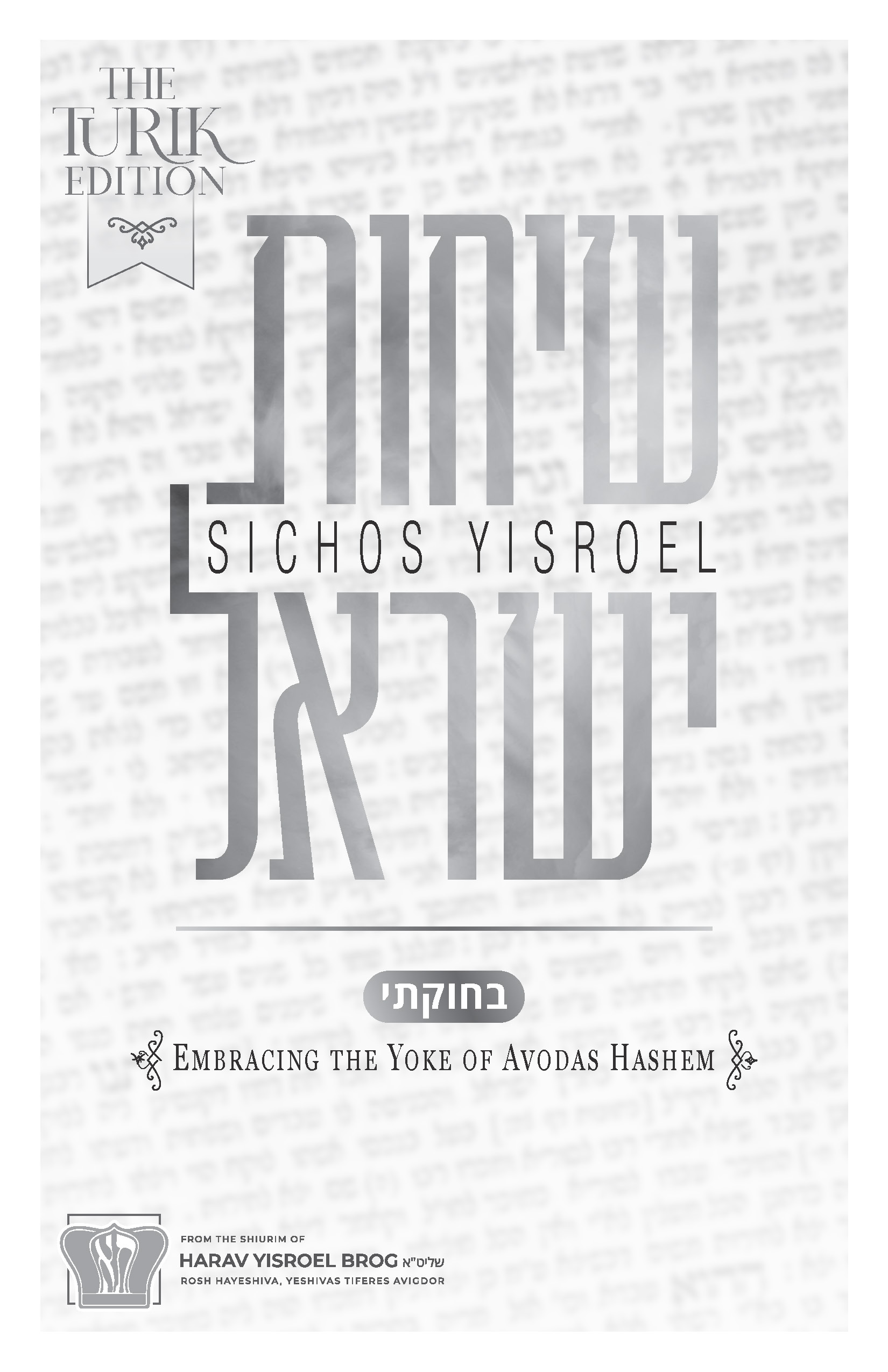
Consider sponsoring a shiur
Visit YTATorah.org
Shiur presented in 5778
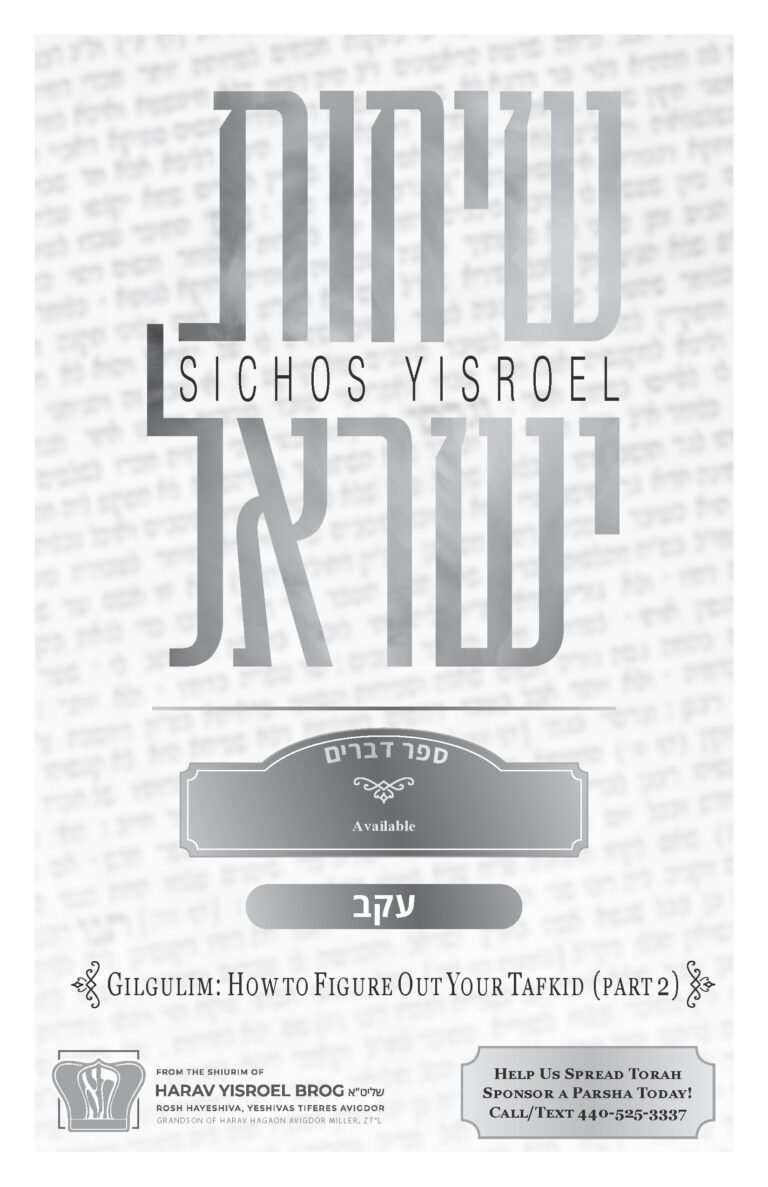
Welcome everybody to this evening shiur. We want to express our thanks to Hakadosh Baruch Hu for enabling us to teach about His wonderful Torah, about His wonderful ways to His children, and we hope to raise the level of our relationship with Hakadosh Baruch Hu, our commitment to Him, and our appreciation of who we are, what we are, and where we are heading.
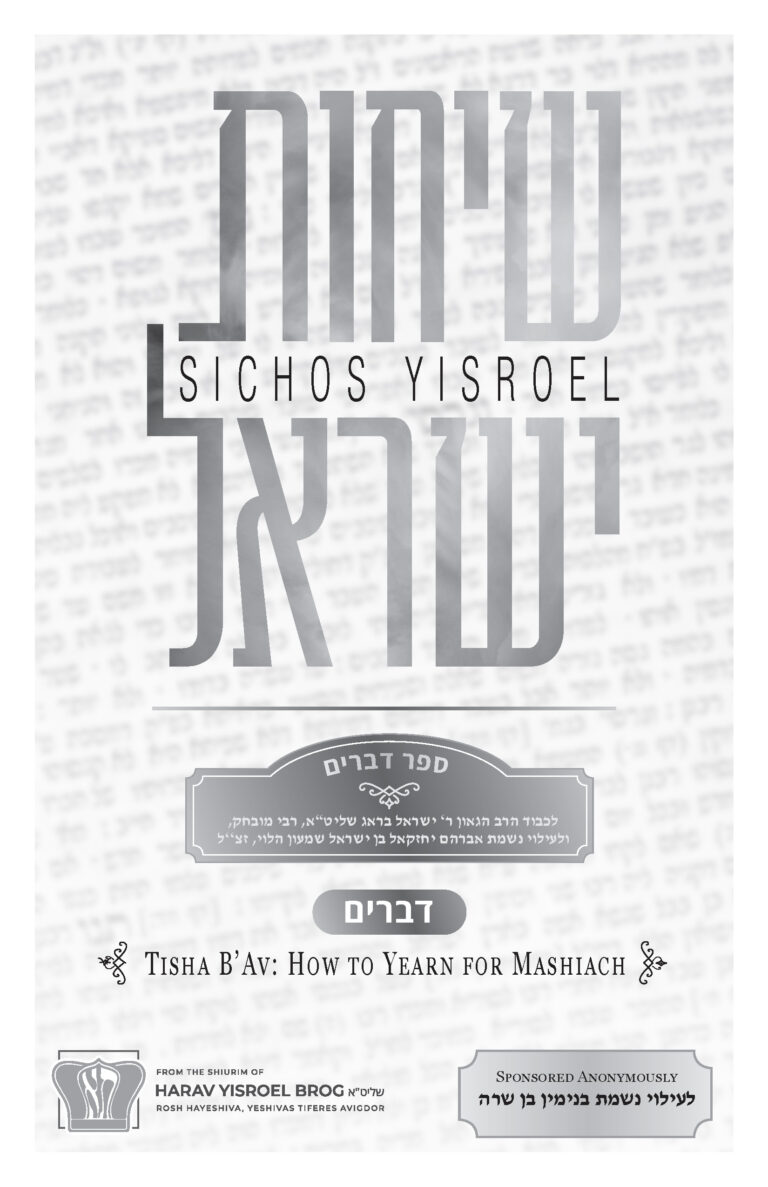
Tisha Ba’av is a day on which we have an appointed meeting, a moed, with Hakadosh Baruch Hu. Tisha Ba’av is a day of special tefillah, called kinnos. The way the moed is expressed is through the kinnos and by yearning for the Beis Hamikdash, and yearning to be taken out of galus. We have to analyze and understand that not all requests are uniform. Different requests require different formats. What is the format for asking for the geulah?
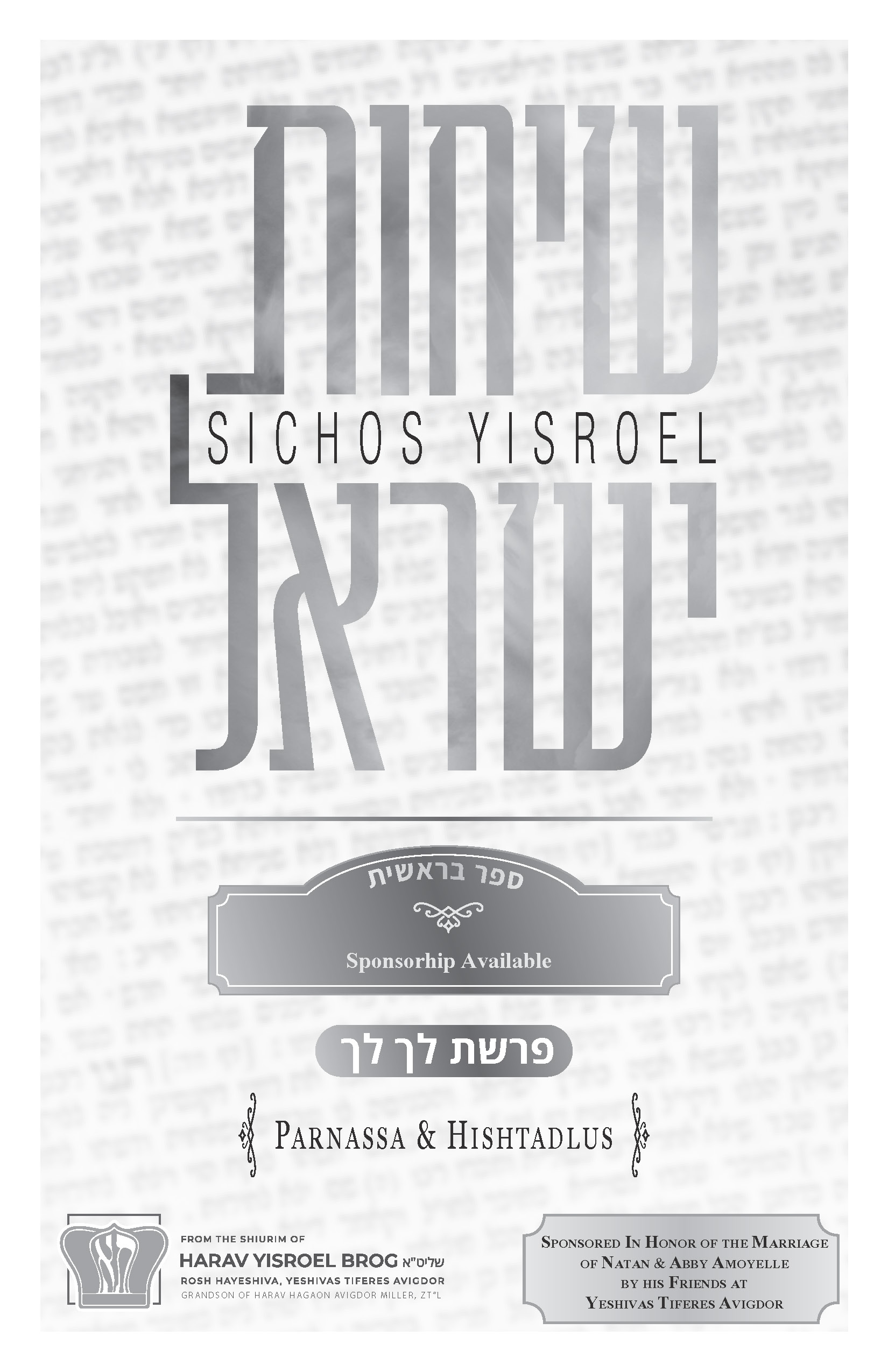
These parshiyos deal with the development of our Avos, and the common theme between all the challenges that Hashem put our Avos through is Emunah. Throughout our lifetime, challenges never cease. You should know that each one of us, in some form or fashion, endures the ten nisyonos of Avraham Avinu.
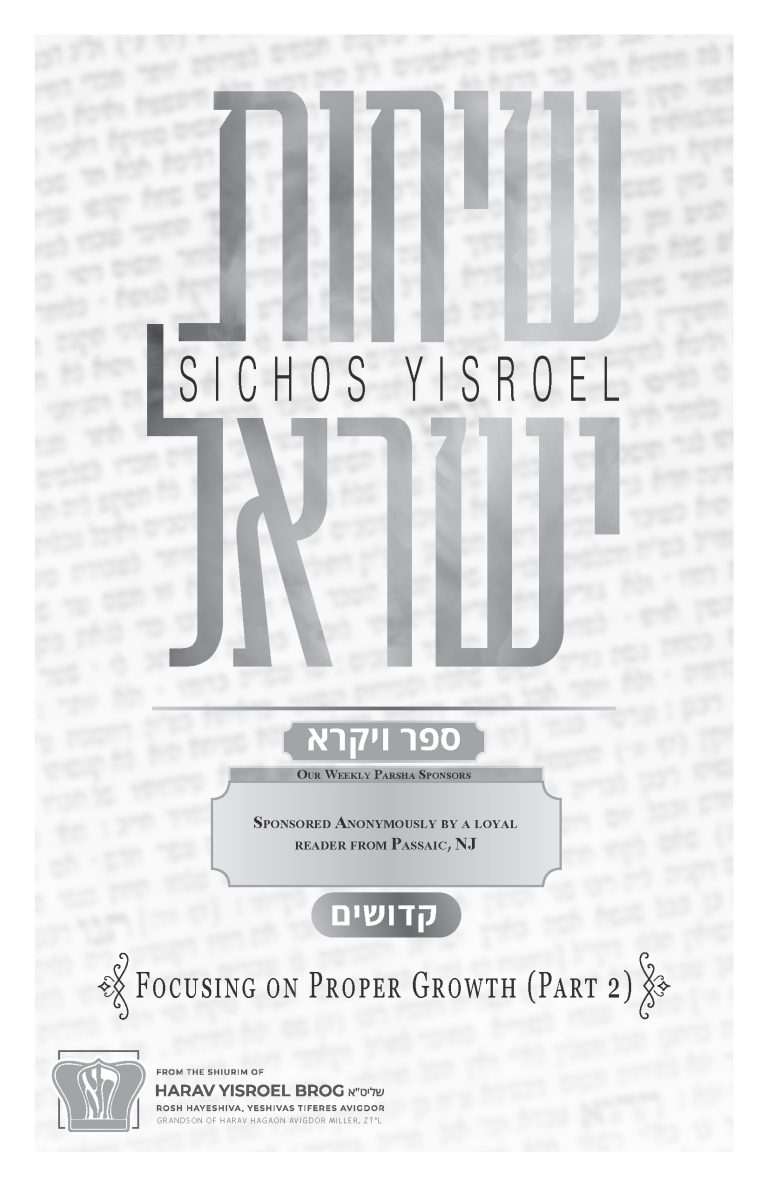
In this week’s parshah, it says “and Hashem spoke to Moshe, saying: ‘Speak to all of Bnei Yisroel…” (Vayikra 19:2). You have to know that this is a very rare introduction. There’s “speak to Bnei Yisroel” but “speak to all Bnei Yisroel” is very unique. Hashem wanted every single part of Klal Yisrael to be involved in this parshah. Rashi points out that for this parashah Klal Yisrael was commanded to come together and to hear directly what Moshe Rabeinu had to say.

In the Torah, we see statements or episodes that to the simple mind and eye might seem insignificant. The Torah tells us that Rivka, the wife of Yitzchak, finally becomes pregnant, and the Torah states, ויתרוצצו הבנים בקרבה – and the children struggled in her womb (Bereishis 25:22). Onkelos teitches (translates) this to mean ודחקין בניא – her children were pushing within her womb.
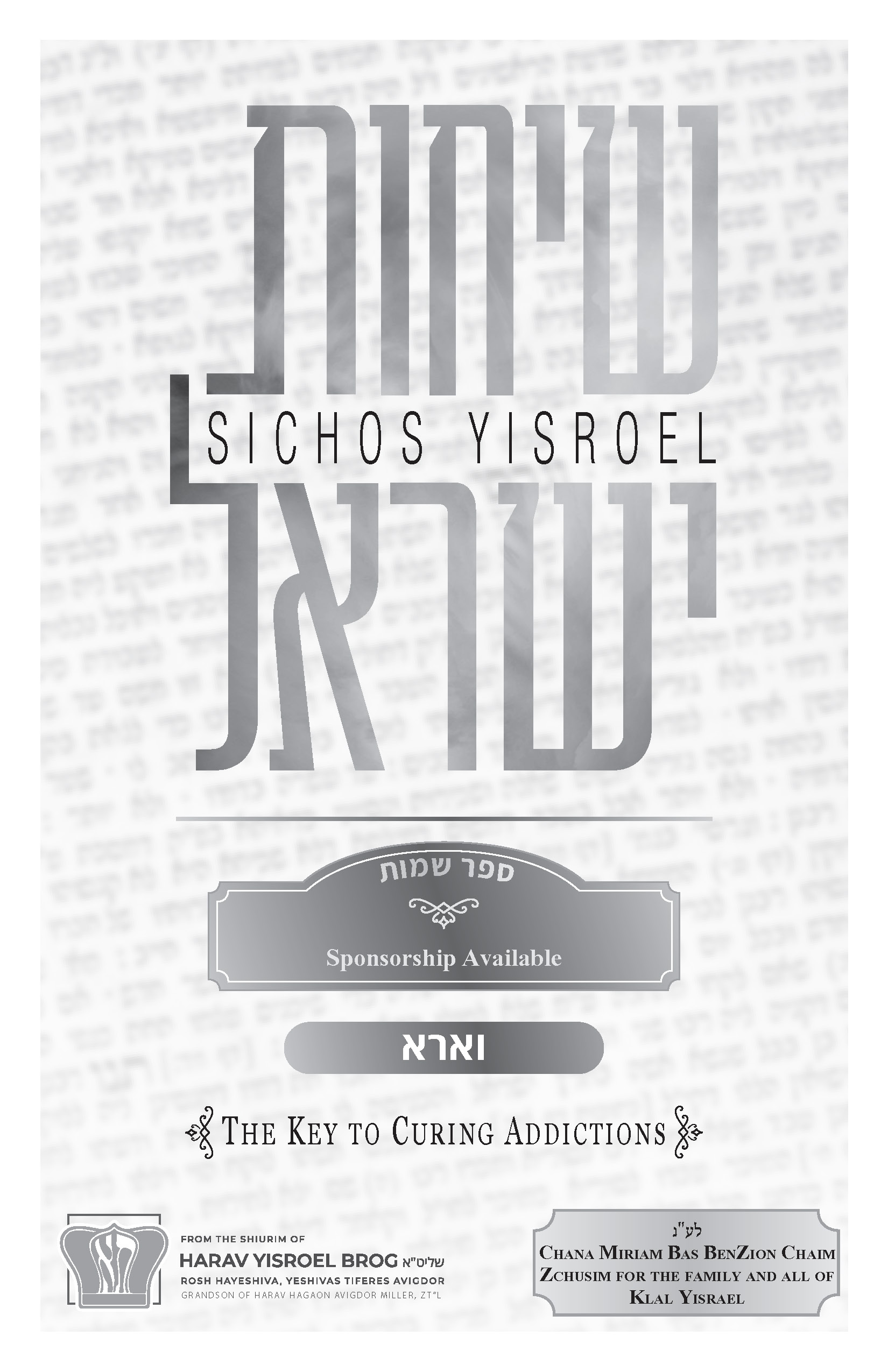
There is a fellow in Eretz Yisrael who is the editor of the Hebrew Yated Ne’eman. His name is Yisrael Friedman. He was extremely close with Rav Aharon Leib Shteinman. He was in his house many times. One day, eighteen years before Rav Aharon Leib was niftar, the phone rings by Yisrael Friedman. He picks up the phone – it’s the rosh yeshivah. Rav Aharon Leib is calling. Rav Aharon Leib tells him, “I have to speak to you right now…”